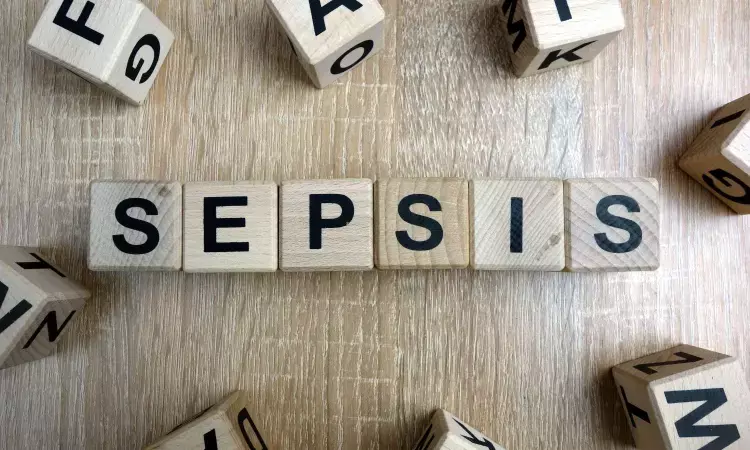- Home
- Medical news & Guidelines
- Anesthesiology
- Cardiology and CTVS
- Critical Care
- Dentistry
- Dermatology
- Diabetes and Endocrinology
- ENT
- Gastroenterology
- Medicine
- Nephrology
- Neurology
- Obstretics-Gynaecology
- Oncology
- Ophthalmology
- Orthopaedics
- Pediatrics-Neonatology
- Psychiatry
- Pulmonology
- Radiology
- Surgery
- Urology
- Laboratory Medicine
- Diet
- Nursing
- Paramedical
- Physiotherapy
- Health news
- Fact Check
- Bone Health Fact Check
- Brain Health Fact Check
- Cancer Related Fact Check
- Child Care Fact Check
- Dental and oral health fact check
- Diabetes and metabolic health fact check
- Diet and Nutrition Fact Check
- Eye and ENT Care Fact Check
- Fitness fact check
- Gut health fact check
- Heart health fact check
- Kidney health fact check
- Medical education fact check
- Men's health fact check
- Respiratory fact check
- Skin and hair care fact check
- Vaccine and Immunization fact check
- Women's health fact check
- AYUSH
- State News
- Andaman and Nicobar Islands
- Andhra Pradesh
- Arunachal Pradesh
- Assam
- Bihar
- Chandigarh
- Chattisgarh
- Dadra and Nagar Haveli
- Daman and Diu
- Delhi
- Goa
- Gujarat
- Haryana
- Himachal Pradesh
- Jammu & Kashmir
- Jharkhand
- Karnataka
- Kerala
- Ladakh
- Lakshadweep
- Madhya Pradesh
- Maharashtra
- Manipur
- Meghalaya
- Mizoram
- Nagaland
- Odisha
- Puducherry
- Punjab
- Rajasthan
- Sikkim
- Tamil Nadu
- Telangana
- Tripura
- Uttar Pradesh
- Uttrakhand
- West Bengal
- Medical Education
- Industry
Current strategies and forthcoming evidence for targeting the host response in sepsis

Immunomodulatory Treatments in Sepsis
Recently published research paper discusses the challenges and advancements in sepsis treatment, focusing on the varied immune responses of sepsis patients and the potential for precision immunotherapy to improve outcomes. It highlights the dysregulated host response to infection in sepsis and emphasizes the need to identify responders to specific immune interventions. The paper presents various immunomodulatory treatments, such as targeting tumor necrosis factor (TNF), interleukin-1 (IL-1) signaling, and IL-6, and discusses their effects on sepsis patients. It also covers the potential of targeting the complement system, glucocorticoids, antibiotics with anti-inflammatory properties, and other immunomodulatory agents in sepsis treatment. Additionally, the paper explores the role of immunostimulatory cytokines and growth factors, mesenchymal stem cells, immune checkpoint inhibitors, and extracorporeal strategies in modulating the host response to sepsis.
Precision Medicine Approaches in Sepsis
The paper emphasizes the complexity and heterogeneity of sepsis, underscoring the need for precision medicine approaches. It discusses the importance of identifying subphenotypes and endotypes in sepsis patients using biomarkers, immunophenotyping, transcriptomics, proteomics, and metabolomics, and highlights the potential for predictive enrichment to tailor targeted treatments. Furthermore, the paper addresses the role of the microbiome, host metabolism, organ dysfunction, and disease tolerance in shaping the response to infection in sepsis. It underscores the significance of understanding patients' immunologic and metabolic status pre-sepsis to reveal risk factors and targets for immune modulation.
Future Perspectives in Precision Immunotherapy
The paper also outlines the future perspectives in the field of precision immunotherapy, the need for improved monitoring tools, and the potential for computational tools like artificial intelligence and machine learning to uncover new treatable traits. It further discusses the challenge of organizing clinical trials and emphasizes the importance of investigating organ dysfunction and finding better ways to understand host responses in sepsis patients. The overall focus is on personalizing and monitoring therapies to improve disease tolerance and modulate immunity in individual septic patients.
Refrence –
Bode, C., Weis, S., Sauer, A. et al. Targeting the host response in sepsis: current approaches and future evidence. Crit Care 27, 478 (2023). https://doi.org/10.1186/s13054-023-04762-6.
MBBS, MD (Anaesthesiology), FNB (Cardiac Anaesthesiology)
Dr Monish Raut is a practicing Cardiac Anesthesiologist. He completed his MBBS at Government Medical College, Nagpur, and pursued his MD in Anesthesiology at BJ Medical College, Pune. Further specializing in Cardiac Anesthesiology, Dr Raut earned his FNB in Cardiac Anesthesiology from Sir Ganga Ram Hospital, Delhi.
Dr Kamal Kant Kohli-MBBS, DTCD- a chest specialist with more than 30 years of practice and a flair for writing clinical articles, Dr Kamal Kant Kohli joined Medical Dialogues as a Chief Editor of Medical News. Besides writing articles, as an editor, he proofreads and verifies all the medical content published on Medical Dialogues including those coming from journals, studies,medical conferences,guidelines etc. Email: drkohli@medicaldialogues.in. Contact no. 011-43720751


